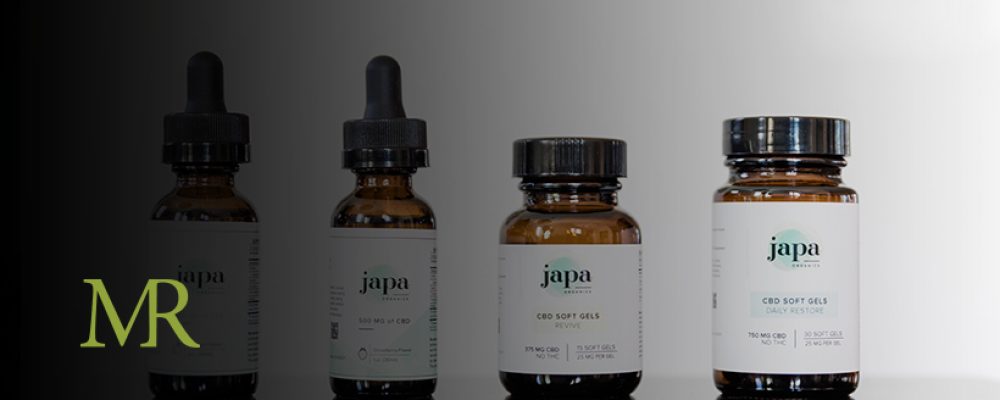CBD popularity has exploded since the passage of the 2018 Farm Bill in December federally legalized hemp. When President Donald Trump signed the bill into law after months of preparation and debate, it officially legalized the nationwide cultivation and sale of industrial hemp.
The Farm Bill removed hemp — which is cannabis that contains less than 0.3 percent THC — from the Controlled Substances Act. The result? Farmers can now obtain federal hemp cultivation permits, and individual states can regulate the industry within its borders as they see fit. Several states, including both Florida and Texas, have recently passed laws to regulate both hemp and CBD.
Official Holiday = Normalization
CBD has become so mainstream that there’s even a new industry holiday — National CBD Day, which will join a list of more than 1,500 national holidays. National CBD Day will be celebrated on August 8, and was founded by cbdMD, a vertically integrated CBD company, to bring awareness to hemp-derived CBD and the benefits it provides.
Delayed Initiation
Right after the Farm Bill was signed, in December 2018, the commissioner at the time — Scott Gottlieb — of the Food and Drug Administration (FDA), announced the agency was looking for “pathways” that would legalize the use of CBD in food, beverages and supplements. That was quickly followed by another announcement that clarified that the FDA considers CBD to be a drug ingredient and as a result an illegal additive to food or health products without FDA approval.
Additionally, the roll-out of the industry was delayed by the government shutdown in early 2019. The result? The USDA couldn’t approve state hemp program regulations and prevented the FBI from conducting the required background checks needed to license prospective hemp farmers.
Murky Waters
Since passage of the 2018 Farm Bill, a regulatory gray area has left the door open to unanticipated challenges and lingering stigmas. A prime example is from January 2019, when Idaho State Police arrested a man, Denis Palmarchuk, and charged him with felony drug trafficking. Officers discovered over 6,000 pounds of hemp in the truck he was transporting from one licensed company to another.
Several months later, in April 2019, the USDA issued the first official guidance on the legal hemp industry, and authorized hemp seed imports. They followed up in June with additional guidance, indicating that hemp is legal to transport across state lines.
Public Input
In May, the FDA held the first-ever public hearing on CBD and received public comment on the compound. While the FDA has yet to release any official policy or guidance for the industry, a report is expected at some point by the end of 2019.
Additionally that same month, the Transportation Security Administration (TSA) updated its cannabis policy to permit travelers to bring certain CBD products on flights. The U.S. Postal Service (USPS) followed suit in June, and unveiled new mailing standards that allow for certain products derived from cannabis and industrial hemp to ship, albeit under specific conditions. For example, upon request, businesses may be asked to provide documentation proving state licensure and the THC content of the product at the time of mailing.
In another indication of public acceptance, the United States Patent and Trademark Office (USPTO) said in May that hemp businesses may apply for trademark registration, provided their operations comply with the FDA regulations stating that hemp-derived CBD cannot be used as a food or beverage ingredient.
Lastly, the U.S. Hemp Authority Technical Committee is currently developing what they call the organization’s Guidance Plan 2.0 in an effort to improve the program. The plans include incorporating public comment into its new program.
Industry Certification
The U.S. Hemp Authority awarded its first Certification Seals to 13 companies that met the standards of its program in March 2019, signifying that the companies ensure the safety, consistency and accurate labeling of hemp-derived products. While some industry players saw the program as a positive move forward for the industry and a means of transparency, the moment didn’t go without opposition. There was expressed concern via an open letter that outlined reasons the Certified Seal program should be opposed.
Big Retail Beckons
Before the passage of the Farm Bill, the Brightfield Group issued a report that predicted that the hemp-derived CBD market would hit $22 billion by 2022, and the explosive growth would be supported through an increase in CBD product distribution channels within a few years.
The prediction spurred chain retailers to enter the marketplace, and the pharmacy chain CVS announced shortly thereafter that they would begin selling hemp-derived CBD products at their stores in eight states. Walgreens followed suit, unveiling plans to sell CBD creams, patches and sprays in nearly 1,500 stores in select states.
Likewise, Cincinnati-based grocery store chain Kroger started offering a variety of CBD topical products in several states, and Dillard’s announced in July that they will carry a wide selection of CBD wellness and beauty products.


